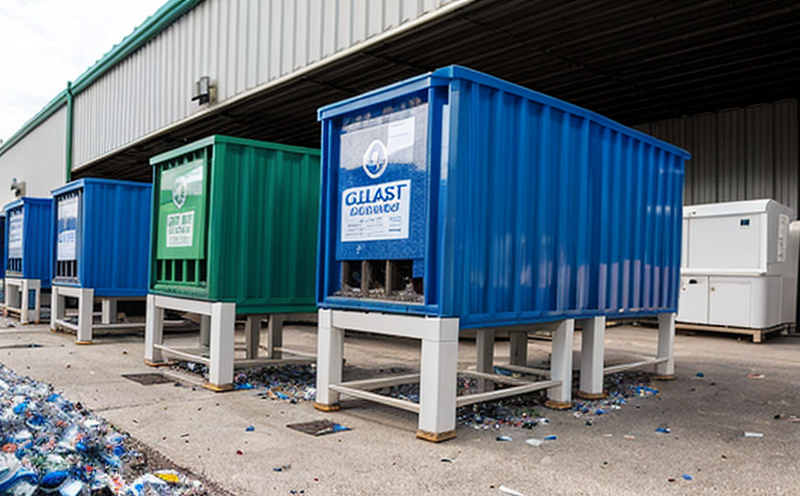EN 12888 Shear Strength of Recycled Glass
The European Standard EN 12888 specifies the procedure for determining the shear strength of recycled glass. This test is critical in waste management and recycling sectors as it ensures that recycled materials meet the necessary structural integrity requirements before being used in various applications.
Incorporating this standard into your quality control process helps ensure consistency, reliability, and compliance with international standards. The procedure involves testing specimens of recycled glass under shear stress to determine their resistance to failure. This information is vital for industries that rely on recycled materials, such as construction, automotive, and electronics.
The test ensures that recycled glass can be used safely in applications where structural integrity is paramount. For instance, in the construction sector, recycled glass might be used in composite materials or insulation products. By adhering to EN 12888, manufacturers can verify that their recycled glass meets the necessary strength requirements.
The methodology involves preparing specimens of recycled glass and subjecting them to shear stress until failure occurs. The force at which failure happens is recorded, providing a measure of the material's shear strength. This process helps in assessing the quality of recycled glass and its suitability for use in various applications.
For R&D engineers, this test offers valuable insights into the behavior of recycled materials under stress conditions. Understanding these parameters allows for continuous improvement in recycling processes and product development. Compliance officers can ensure that their operations adhere to international standards, thereby minimizing legal risks and ensuring customer satisfaction.
The EN 12888 standard is widely recognized across Europe and beyond, making it an essential tool for quality assurance in waste management and recycling industries. By implementing this test, businesses not only comply with regulatory requirements but also enhance their reputation as environmentally responsible entities.
In summary, the shear strength test of recycled glass under EN 12888 is crucial for ensuring that recycled materials are fit for purpose. It provides a standardized method to evaluate the structural integrity of recycled glass, which is essential for its successful integration into various applications.
Applied Standards
| Standard Reference | Description |
|---|---|
| EN 12888:2019 | Detailed procedure for determining the shear strength of recycled glass. |
Scope and Methodology
The scope of EN 12888 encompasses the determination of the shear strength of recycled glass, which is a critical property for ensuring its structural integrity. The methodology involves several key steps:
- Specimen preparation: Recycled glass specimens are carefully prepared to ensure uniformity and representativeness.
- Test setup: Specimens are placed in a shear testing machine, where they are subjected to controlled shear stress.
- Data collection: The force at which failure occurs is recorded as the shear strength value.
The test setup typically involves a shear testing machine capable of applying precise forces. Specimens are usually cut from larger pieces of recycled glass, ensuring that they represent the properties of the material used in the final application.
Acceptance criteria for EN 12888 specify that specimens must meet certain minimum shear strength values to be considered suitable for use. These values depend on the intended application and are defined in the standard itself. Compliance with these criteria ensures that recycled glass is fit for purpose, enhancing its reliability and safety.
Quality managers can rely on this test to ensure consistency across batches of recycled glass. By adhering to EN 12888, they can maintain high standards of quality control and compliance, which are essential in the waste management and recycling sectors.
Why Choose This Test
- Ensures structural integrity: The shear strength test verifies that recycled glass meets necessary strength requirements for its intended application.
- Compliance with international standards: Adhering to EN 12888 helps businesses comply with regulatory requirements and maintain a positive reputation.
- Improved quality control: By implementing this test, manufacturers can ensure that their recycled glass is consistent in quality across batches.
- Enhanced product reliability: Testing according to EN 12888 enhances the reliability of products containing recycled glass, ensuring they meet safety and performance standards.
- Cost-effective: Ensuring material quality upfront can prevent costly issues downstream, such as failed applications or recalls.
- Environmental responsibility: Compliance with international standards demonstrates a commitment to environmental sustainability.
- Market differentiation: Offering products that meet the highest standards can differentiate your business in the market.





